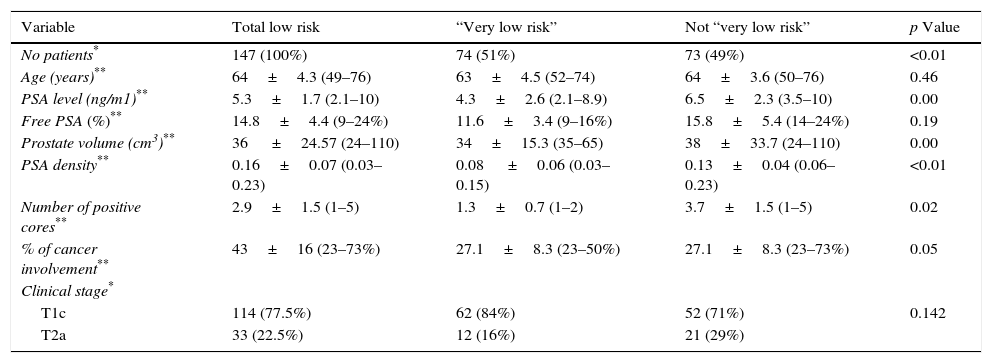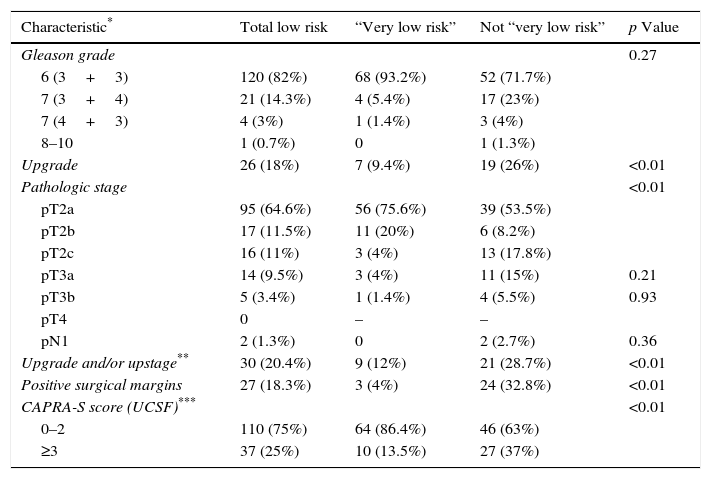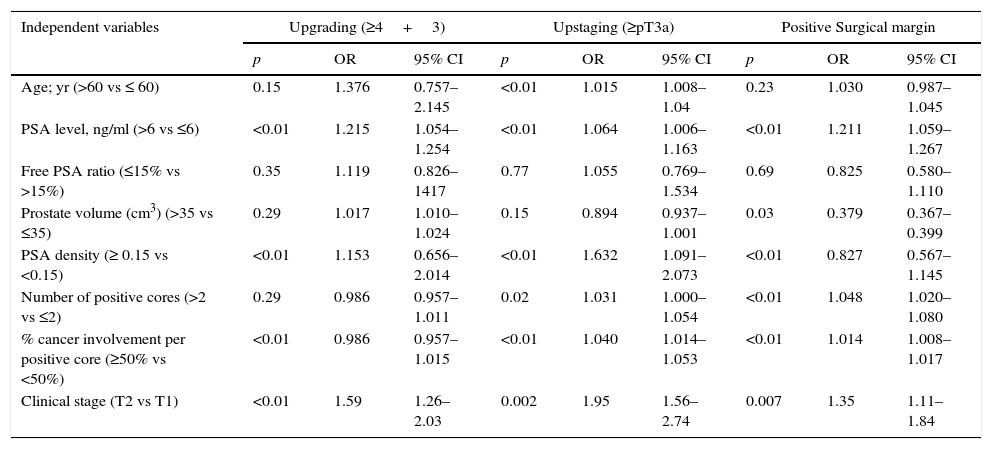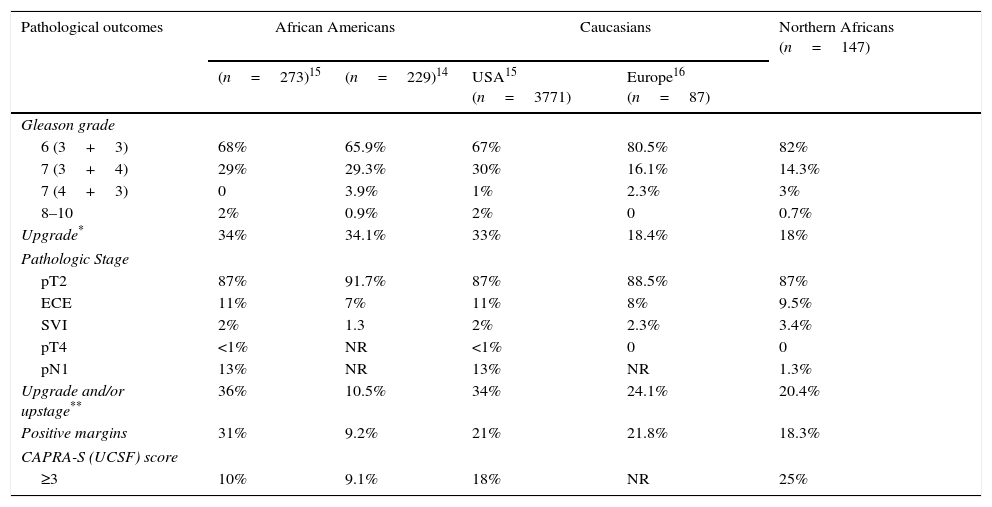Northern African (NAf) men show a high incidence of advanced prostate cancer (PCa) at diagnosis. Several studies suggested the existence of ethnic differences in the PCa aggressiveness and this has led to some concerns related to the inclusion of some ethnic groups into active surveillance protocols.
ObjectiveTo evaluate pathological outcomes and aggressiveness of low risk PCa treated by radical prostatectomy in a NAf ethnic group.
Subjects and methodsData of 147 NAfs, who underwent radical prostatectomy for low risk PCa diagnosed via a 12-core biopsy in 2 academic centers between 2011 and 2015, were reviewed retrospectively to assess rates of worse pathological outcomes defined as: Gleason score upgrade to at least 3+4, upstage to pT3a or higher or pN1, and positive surgical margins.
ResultsOverall significant upstage and/or upgrade occurred in 20.2% and positive surgical margins occurred in 18.3%. In multivariate logistic regression analysis, independent variables that predicted for upstage and/or upgrade or positive surgical margins in the entire cohort were: NCCN risk group (low risk>very low risk), advanced age>60 years, PSA>6ng/ml, PSA density≥0.15, more than 2 positive cores in biopsy, more than 50% cancer involvement in positive cores, clinical stage (T2a>T1c) and UCSF-CAPRA-S score>3.
ConclusionsOur study found that, at least pathologically, NAf men do not have more aggressive disease than Caucasians and African Americans in both low and very low risk PCa. Thus, we think that active surveillance is a suitable approach for selected patients since there is no definitive data that show a more aggressive natural history of PCa in NAf men.
Los hombres norteafricanos (NAF) presentan una alta incidencia de cáncer de próstata (CaP) avanzado en el momento del diagnóstico. Varios estudios han demostrado la existencia de diferencias étnicas en la agresividad del CaP y esto ha dado lugar a algunas preocupaciones relacionadas con la inclusión de algunos grupos étnicos en los protocolos de vigilancia activa.
ObjetivoEvaluar los resultados patológicos y la agresividad del CaP de bajo riesgo tratado con prostatectomía radical en un grupo étnico NAF.
Sujetos y métodosLos datos de 147 NAF sometidos a prostatectomía radical por CaP de bajo riesgo diagnosticado por medio de una biopsia de 12 núcleos en 2 centros académicos entre 2011 y 2015 se revisaron retrospectivamente para evaluar las tasas de resultados patológicos peores definidas como: actualización de la puntuación de Gleason a por lo menos 3+4, eclipse a pT3a o superior o pN1, y márgenes quirúrgicos positivos.
ResultadosEl eclipse y/o actualización significativa global se produjo en el 20,2% y se produjeron márgenes quirúrgicos positivos en el 18,3%. En el análisis de regresión logística multivariante, las variables independientes que predijeron eclipse y/o actualización o márgenes quirúrgicos positivos en toda la cohorte fueron: grupo de riesgo NCCN (riesgo bajo>riesgo muy bajo), edad avanzada>60 años, PSA>6ng/ml, densidad de PSA≥0,15, más de 2 núcleos positivos en la biopsia, implicación del cáncer de más del 50% en los núcleos positivos, estadio clínico (T2a>T1c) y puntuación UCSF-CAPRA-S>3.
ConclusionesNuestro estudio encontró que, al menos patológicamente, los hombres NAF no tienen una enfermedad más agresiva que los caucásicos y afroamericanos, tanto en CaP de bajo como de muy bajo riesgo. Por lo tanto, creemos que la vigilancia activa es un enfoque adecuado para pacientes seleccionados ya que no hay datos definitivos que muestren una historia natural más agresiva de CaP en hombres NAF.










